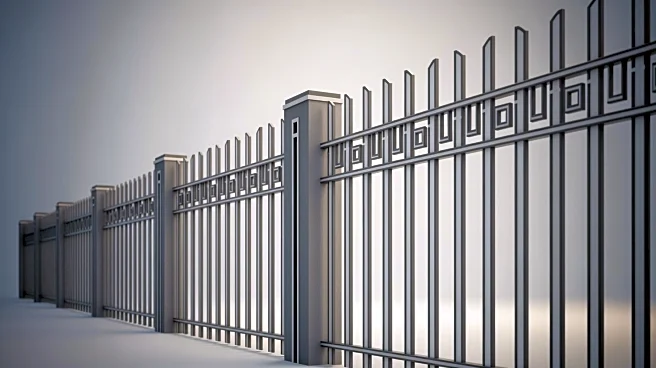What's Happening?
The Federal Circuit has ruled that a North Texas fence manufacturer did not infringe upon four patents related to an easy-to-install fencing system. This decision upholds a previous ruling by the US District Court for the Northern District of Texas. The case
involved patent owner Barrette Outdoor Living Inc. and rival fence maker Fortress Iron LP. Both parties agreed that the district court's interpretation of key terms in the patents was logical. However, Barrette challenged the court's interpretation on appeal, arguing that the term 'boss,' which describes a nub-like feature in the patents, was interpreted too narrowly.
Why It's Important?
This ruling is significant for the fencing industry as it clarifies the interpretation of patent terms, potentially affecting future patent disputes. The decision may influence how companies approach patent applications and litigation strategies, particularly in industries where design features are critical. For Barrette Outdoor Living Inc., the ruling represents a setback in their efforts to protect their intellectual property. Conversely, Fortress Iron LP benefits from the decision, as it allows them to continue their operations without the threat of infringement claims. The case highlights the importance of precise language in patent documentation and the role of courts in interpreting these terms.
What's Next?
Following the Federal Circuit's decision, Barrette Outdoor Living Inc. may consider further legal options, such as appealing to the Supreme Court, although such actions are rare and challenging. The ruling may prompt other companies in the industry to review their patent portfolios and litigation strategies. Additionally, the decision could lead to increased scrutiny of patent language in future applications, as companies seek to avoid similar disputes. Stakeholders in the fencing industry will likely monitor the case's impact on patent law and its implications for competitive practices.
Beyond the Headlines
The case underscores the complexities of patent law and the challenges companies face in protecting their innovations. It also highlights the role of the judiciary in shaping industry standards through legal interpretations. The decision may encourage companies to invest in clearer patent documentation and legal advice to safeguard their intellectual property. Furthermore, the ruling could influence broader discussions on patent reform and the balance between innovation and competition.














